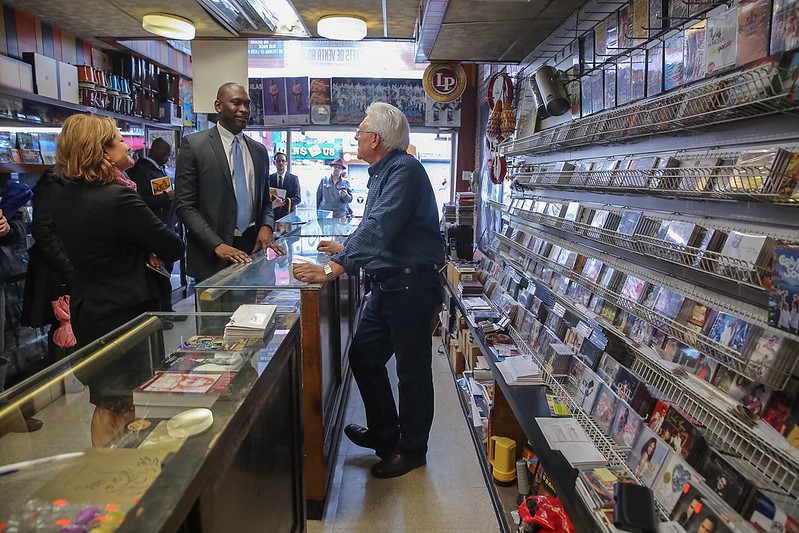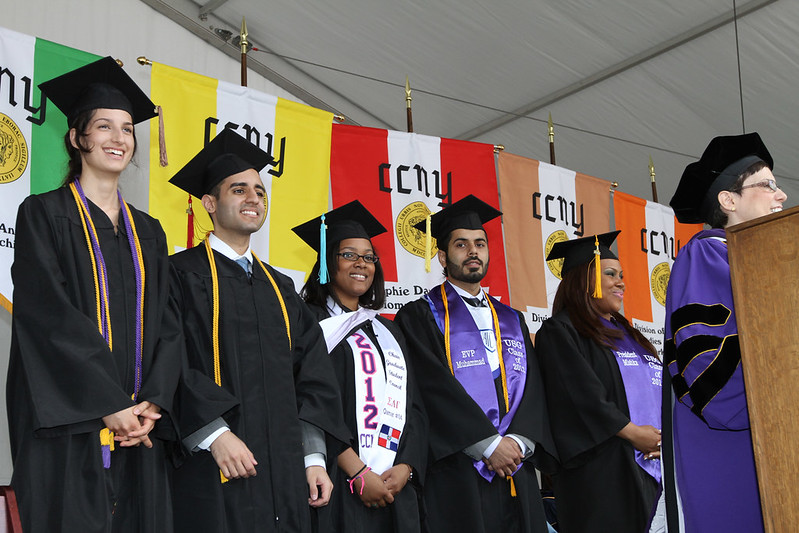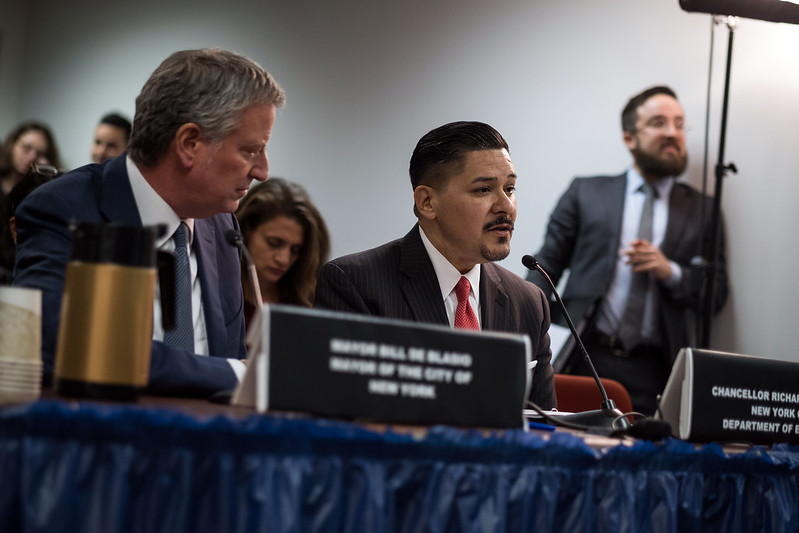How to Shop Small This Holiday Season

(photo: William Alatriste/City Council)
The holiday season is upon us and we all know the temptation of online shopping. The ease of getting the things we want at the click of a button might seem harmless, but it has major consequences for local small businesses.
Shopping online takes away from the livelihood of local residents and strips the community of its extraordinary businesses. E-commerce also means you don’t have the ability to inspect your purchases before receipt, you have to go through the hassle of repackaging and returning items you don’t want to keep, and you’re depriving yourself of getting to know the business owners in your neighborhood.
The better way is the smaller way. Shopping small means you’re supporting your community. Small businesses are the backbone of New York’s local economy, with over 230,000 businesses, employing 3.69 million people. Besides contributing to the workforce, small businesses connect communities and help create unique, energetic neighborhoods throughout our city.
As the holiday shopping season approaches, I’m encouraging all New Yorkers to show some love to our small businesses. Here are some ways you can help your local small businesses that extend beyond just your purchasing power:
Participate in Small Business Saturday. Avoid the Black Friday mayhem and shop small on Saturday, November 30.
Pledge Your Shopping List to Your Community. This holiday season make a commitment to buy half of your shopping list from local small businesses. Jewelry, clothing, pottery, and books are all great gifts that can be found in your neighborhood. Consider gifting a “made in New York” basket with your favorite local items.
Share Small Business Content on Social Media. A great way to support your favorite local businesses is to share their content on social media. It can be as simple as posting a picture on Instagram or checking in on Facebook.
Leave Positive Reviews. While word-of-mouth recommendations are always good for small businesses, it doesn’t hurt to leave positive reviews on Yelp and Google. Leave an online review for small businesses to get more traction and visibility.
Join the fun! Participate in seasonal fun on your block and in your neighborhood, or even in another neighborhood you enjoy or are eager to explore for the first time. From tree-lighting events to local gift guides, get involved and shop small.
While you’re preparing for this busy season, remember to continue supporting the diverse, independent small businesses that enrich neighborhoods across New York City. As we enter this busy holiday season, don’t forget to shop small!
***
Gregg Bishop is the Commissioner for the New York City Department of Small Business Services. On Twitter at @NYC_SBS and @GreggBishopNYC.
***
Have an op-ed idea or submission for Gotham Gazette? Email This email address is being protected from spambots. You need JavaScript enabled to view it.
The Right to a Free and Quality Public Higher Education in New York

(photo: The City College of New York)
CUNY has long been the pride of New York City and its cradle of opportunity. But at a recent legislative hearing on higher education in Brooklyn, we heard from teachers, administrators, and students about a harsh reality: After years of state underinvestment in public college, our CUNY system is teetering on the edge of crisis.
Both of us have been blessed with a CUNY education. Yet both of us see firsthand the heartbreak and struggle that many students face when they seek to advance themselves through higher education. In the end, some graduate. Some don’t. And some never get to try because it’s just not affordable.
Students desperately need relief. CUNY’s six-year degree completion rate is only 55%, and financial strain is one of the main reasons students drop out. In a 2017 report on college success, the Center for an Urban Future shared that 75% of dropouts at Kingsborough Community College had a financial “red flag” in their accounts such as owing money or loss of scholarship. To make matters worse, a staggering half of all CUNY students experience food insecurity, and many struggle with housing insecurity or even homelessness.
There’s a reason for this dire situation: Tuitions have risen steadily year after year, as the share of the budget that comes from tuition has grown from 20% to almost 50% over the past 30 years.
In other words, students are bearing the burden of our failure to invest in quality public higher education.
This penny-pinching on the part of New York has led to further consequences. Adjuncts, upon whom CUNY increasingly relies, are grossly underpaid, even with a new contract that would increase the minimum pay per course. The ratio of full-time faculty to students is significantly higher than national standards. Facilities have deteriorated and class sizes have become overcrowded. These trends cause lower retention rates and greater time to graduation.
This is a downward spiral that we must stop.
In today’s age, a higher education is no less necessary to succeed in most fields as a high school diploma was two generations ago. And a college degree is a pathway to economic opportunity and financial security: according to the Bureau of Labor Statistics, a person with only a high school diploma has nearly double the unemployment rate of a college graduate and earns on average 39 percent less per week.
A CUNY education has been shown to be one of the most successful ways to bring a student from the bottom quintile in family income to the top—with a mobility rate of more than three times those of the most elite institutions.
The struggle of our CUNY students and underinvestment in our CUNY system mirrors the budget cuts for public schools across the nation that occurred after the Great Recession. State funding for public schools across the country is $9 billion below 2008 levels, adjusted for inflation, according to the Center on Budget and Policy Priorities.
Recognizing the necessity of free college, Governor Cuomo and the Legislature implemented the Excelsior Scholarship in 2017, aiming to make four-year college tuition-free for many.
Yet as of 2018, only about 3% of the state’s undergraduates benefited from the scholarship. The majority of applicants who applied were rejected because they didn’t meet the onerous credit requirements.
New York is missing out on future climate scientists, doctors, and other leaders because students can’t pay for rent, food, and a MetroCard without a job, which makes them unable to access or retain the Excelsior Scholarship.
It’s time to transform New York State with a robust promise for free higher education. We did it once before with K-12 schooling and we should boldly aim to do it again by making New York the first state in the country to constitutionally guarantee a free, quality public college education.
Higher education should not be a luxury for the few but a tool for many. Let New York lead the way and make our state a model of what a commitment to public education in the 21st century should be.
***
State Senator Andrew Gounardes represents parts of Brooklyn and is an adjunct professor at Hunter College. Timothy Hunter is chair of the University Student Senate and a CUNY Student Trustee. On Twitter @agounardes & @thunter_tim.
***
Have an op-ed idea or submission for Gotham Gazette? Email This email address is being protected from spambots. You need JavaScript enabled to view it.
The Schools Chancellor Goes Rogue on Specialized High School Admissions

Chancellor Carranza, with Mayor de Blasio (photo: Ed Reed/Mayor's Office)
City Schools Chancellor Richard Carranza has gone rogue over the issue of what to do about the specialized high schools like Brooklyn Tech, Stuyvesant, Bronx Science, and five others that use the SHSAT, a competitive academic test to determine admissions.
While Mayor Bill de Blasio is now saying that he is open to keeping the test with some added admissions features and the City Council is convening a task force intended to include all stakeholders, which will take a year to examine the issues and make recommendations, Carranza recently demanded that the state Legislature simply “get out of the way” and repeal the state law mandating the existence of Tech, Stuy, and Science with the current admissions system.
This year saw the refusal of the state Legislature to consider the chancellor’s favored bill that would have replaced the test with geographic and other preferences intended to replace much of the Asian student admission with black and Latino students. It wasn’t surprising that many in the Asian community reacted to this by calling the proposal racist.
The chancellor claims that the state should repeal the state law, Hecht-Calandra, because it should get out of the business of running city schools. This ignores that the state gives the city over $11 billion a year to run our schools as well as the myriad of state regulations limiting the city’s unfettered discretion. The state is simply involved, and no amount of rhetoric can make that fact go away.
In return for eliminating the law that mandates the existence of Tech, Stuy, and Science, the chancellor tells the state Legislature to trust him for maintaining the quality of these schools; he says hold him accountable. Of course, that requires that he be around to be held accountable. In the past ten years we have had five different chancellors. Mayor de Blasio, who appointed Carranza, will be out of office at the end of 2021.
Carranza’s “just trust me” approach to eliminating the law mandating the existence of the three schools ignores that he and the mayor have the authority to reverse the city’s decision to voluntarily add five additional schools to the test-in requirement. We don’t have to trust him; he and the mayor can show the Legislature and the public that they can make their desired reforms with those five schools, but they choose not to.
The chancellor claims eliminating the law that mandates the existence of the best high schools in the city is necessary so he can diversify their student bodies “overnight” while maintaining their quality. But the DOE’s failure to diversify academically challenging high schools where there is no state mandated admission system belies this claim.
Of the 22 best STEM (Science, Technology, Engineering and Math) high schools in the city making Newsweek’s list of the 500 best in the country, the sad truth is that the city’s public schools were in the minority. Most of the city schools on the list are private and charge tuition, which can be over $40,000 a year. And of the public schools, the overwhelming majority were specialized high schools. Only three others, Eleanor Roosevelt, Townsend Harris and NEST (Manhattan) made the cut.
Where the city has had the unfettered right to determine admissions processes for these high-achieving STEM high schools, it has ignored the need to diversity their student bodies. At Eleanor Roosevelt, for example, which has a city-mandated preference for students coming from the Upper East Side, the school is over 60 percent white and only 4 percent black.
The city’s schools are described as being the most segregated in the nation. And the explanation for this, particularly from the mayor, is often that we have segregated housing patterns. But at Eleanor Roosevelt, the DOE is affirmatively supporting racial segregation while falsely claiming it is open to all students in the city.
Putting these facts together suggests that the state would be advised to keep the law as it is while allowing the City Council’s task force to do its job. In a very difficult environment, made more difficult by the chancellor, it may be able to heal the wounds caused by the previous effort to eliminate the test and rationally deal with the issues of promoting academic quality and diversity. Both are needed if the children of our city are to be given the best chance to excel in life.
***
Larry Cary is the President of the Brooklyn Tech Alumni Foundation. He is a practicing attorney in Manhattan.
***
Have an op-ed idea or submission for Gotham Gazette? Email This email address is being protected from spambots. You need JavaScript enabled to view it.




